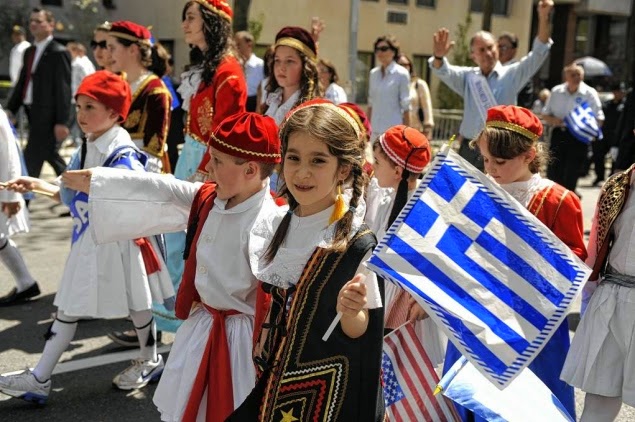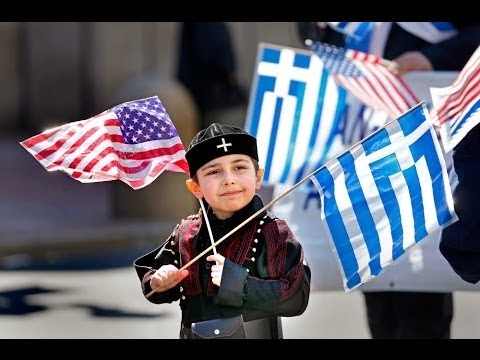Wednesday is Greece’s Independence Day. I’ve written pieces on this subject before,
and of course, the origins and traditions remain much the same…but this year
the spirit of the Greek people is different.
A few years back I wrote the following:
“It is an important day, one of inspiration born out of a
beleaguered people overcoming impossible odds.
The 25th of March marks the day in 1821 when Greek Orthodox Bishop
Germanos of Patras raised the Greek flag at the Monastery of Agia Lavra in
Greece’s Peloponnese and inspired a more than eight-year struggle (1821-1829)
to throw off nearly 400 years of Ottoman rule.
Some say the Revolution actually began a week earlier in another part of
the Peloponnese when the ruler of its Mani region, Petros Mavromichalis, raised
his war flag in Mani’s capital city of Areopoli and marched his troops off
against the Turks."
 |
| Bishop Germanos |
 |
| Petros Mavromichalis |
“But no matter which version you prefer, one thing is for
sure: What Greece confronts today is
child’s play compared to what its ancestors faced in taking on a dominant
empire of its time.”
I don’t think I can say that bold face language any longer
with conviction.
On Wednesday, in towns and villages across Greece, school
children will proudly parade the country’s blue and white flag. Aflutter, the flag is reminiscent of Greek
seas but it holds a deeper meaning. The
white cross honors the contribution of the church to the country’s enduring
battle for freedom and its nine blue and white bars honor the nine syllable
rallying call shouted across the land during Greece’s struggle for
Independence: Eleftheria i Thanatos—Freedom
or Death.
It is a celebration joined in by Greek communities around
the world with parades of their own, all taking time to honor Filiki Eteria, the Society of Friends,
the secret society that instigated Greece’s War of Independence through an
underground struggle as well organized as any found in a best-seller’s tale.
New members were recruited without knowledge of its true revolutionary
purposes. They were attracted by glamorous
rumors and an avowed but vaguely stated general purpose of “doing good” for the
nation.
Importantly, from the very beginning of their quest for
independence, Greeks recognized the need for assistance from outside their
country’s borders, from Europe (both East and West) and Russia. Many answered the call, and had they not the
outcome may have been quite different.
It should not be taken as a coincidence that what is
celebrated Wednesday in honor of the country’s heroic past offers a lesson for
what Greece faces today: This is not a
time for Greece trying to go it alone, but rather for all to work together in
“doing good” for the nation.
Just a thought.
Jeff—Saturday




















Perhaps "just a thought," Jeff, but one that many more of the Greek people (and the European people, and the rich people, and the poor people, and...) need to partake of. After all, if we don't hang together...
ReplyDeleteWow, Jeff, I never knew the story behind the Greek flag. Thank you for that!
ReplyDeleteAnd just for you, Zoë, I should add that some say the nine bars represent the nine letters of ελευθερια in the Greek word for freedom, the idea is the same.
DeleteIndeed, my sentiments exactly, from a country that is still spinning from its own non independence decision while enjoying the economy it might not have had if the decision had gone the other way. So much of the nationalist debate was about the money from oil revenue.... that'll be about five quid then.
ReplyDeleteAt least Scotland had revenues to talk about. Greece's non-maritime economy is virtually all tourism...an iffy thing to base independence on in light of the seething Mediterranean cauldron of our times.
DeleteI like it, and still feel the sadness when such an important country is laid low.
ReplyDeleteAmen, Lil, amen.
DeleteFlag of Greece
ReplyDelete